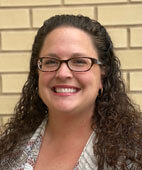by Heather Garcia
I run a fairly tech-free AP® Literature classroom. A majority of the assignments that the students complete utilize pen and paper. We use markers and sticky-chart paper for group projects. The students annotate in physical books. They hand-write dialectical journals and timed essays. It works for us. I am not tech-phobic, I am pretty plugged-in outside of the classroom, but in the classroom space, I have been consciously tech-resistant. I intentionally push my students to unplug.
However, we just had our first COVID-19 case in our county, and nobody really knows how this is going to affect our school systems. In many districts across the nation, we hope it doesn’t affect us at all. But I live on the southwest coast of Florida, and just like we do with hurricanes, we hope it misses us, but we prepare for the “just in case.”
So now I, like thousands of teachers around the globe, am trying to figure out what to do in the “just in case.” The teacher across the hall from me handed out the next novel her kids will read, “just in case” school is canceled or sent virtual. Teachers around me are having their students log into their online learning platforms—some for the first time all year. I see teachers springing into action, and I seem to be in a holding pattern.
The logical teacher in me is screaming to get the kids onto a Google Classroom or a Canvas account or SOMETHING. The literature nerd who prefers paper to screens is throwing a tantrum.
I do realize that my students and I will need to establish the next phase of our teacher-student relationship as we set up distance learning—you know, “just in case.”
I cannot be the only AP® Literature teacher who has been pushing against this movement, and I am certainly not the only teacher who is in a district where a COVID-19 patient is under medical care. I worry that my skills teaching face-to-face may not transfer as smoothly into an online platform, and I need for that to be okay. Will the transition be perfect? Absolutely not. Will it ultimately benefit my kids? Absolutely.
Any additional help and practice I can offer my students is going to help prepare them for the AP® Literature Exam, regardless of whether that practice is offered online or in person.
And, in all actuality, even if we are not mandated to take time off school, the online platform might just be an additional tool to get my students prepared not only for the AP® Literature test but also for the experiences they will have with online platforms when they get into college and the workforce.
What I know I need in my online classroom space are lessons that are specific, focused, concise, and student-driven. I know I need manageable goals, and that the plans I have may change. I want there to be discussion questions that I assign and yet do not need to spend hours reading word-for-word to assign a grade (because I certainly don’t count words during in-class discussions). I know I want students to practice their timed writing skills in a meaningful way. As an educator, I know how I want this to go, the logistics can be the intimidating part.
Thankfully some amazing videos and tutorials already exist, and they can help ease the transition. I have already started watching many of them and they are easing my fears. Marco Learning produced one that you can find here. The video is free, and it is titled “Coronavirus: 5 Ways to Teach Online in an Emergency.” It offers clean and simple strategies for making the transition to an online learning platform.
With wide-spread temporary school and business closures all over the world, I want my students to know that their education still matters. They need to know that the rich learning that has happened all year won’t cease, it will just change. I may not get to review pen-scribed annotations on yellowed book pages, but I will get to see their shiny thoughts typed out on a bright screen, and that will be enough for me.

Heather Garcia is an English teacher at Charlotte High School, Florida, where she teaches AP English Literature and AP® English Language. She is a professional development leader in her district, running annual new-teacher trainings and is now the Curriculum and Instructional Specialist for her district for grades 6-12. After 16 years of hands-on experience, Heather has developed a series of strategies to help her students navigate challenging texts. Her favorite book is the Steinbeck classic, East of Eden.
 Help
Help